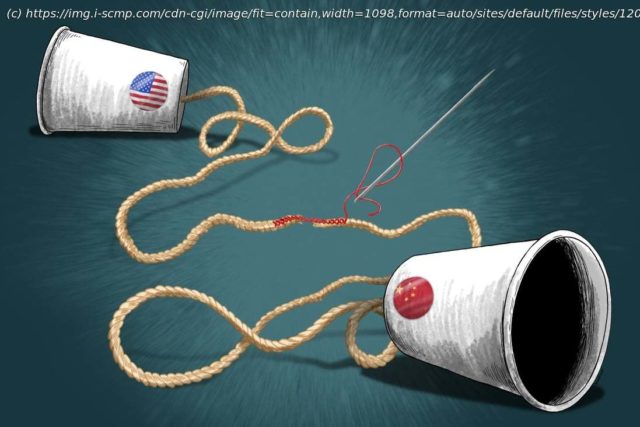US sanctions on Li stand in the way but the implications of not talking are too high to ignore.
One of the most important security conferences on the international calendar gets under way for the 20th time in Singapore on June 2, bringing together defence ministers, military personnel and policy watchers. In the first of a three-part series, Minnie Chan examines the prospects of engagement between the defence ministers of the world’s two most powerful militaries: China and the United States. When the Shangri-La Dialogue gets under way in Singapore on Friday it will bring a much needed opportunity for the military top brass of both China and the US to shake hands and add some personal warmth to their frosty relations. But that opportunity – or even just a chance encounter in the corridors of the plush Shangri-La Hotel – could be lost as the two sides still fail to see eye to eye on almost every issue in their strained relationship. As they face off in the Pacific and the South China Sea , the US defends its actions as “freedom of navigation operations”, while China insists that it will not budge on its territorial integrity and sovereignty. The two countries are also exchanging heated military signals around Taiwan, with the US ramping up its military support despite Beijing’s repeated warnings, and the People’s Liberation Army inching ever closer to the island in its drills. Any meeting in Singapore is likely to be tense but observers say the stakes of the superpowers not talking to each other in the new cold war era are grave. Tensions between Beijing and Washington were expected to improve this year, with the US and Chinese presidents meeting in Bali last November and agreeing to better communication. But then came the downing of a suspected Chinese spy balloon in American waters, prompting US Secretary of State Antony Blinken to cancel a trip to China. Washington’s arms sales to Taiwan and US suspicions that Beijing is arming Russia in the Ukraine war have added to the mistrust. Ni Lexiong, a professor with the Shanghai University of Political Science and Law, said the Pentagon was also ramping up military pressure on China, with plans to deploy an Ohio-class submarine to the Korean peninsula for regular patrols and Nato looking to set up its first office in Japan . “The US has tried its utmost to rope all China’s neighbours in its camp to further isolate and contain China, putting the Chinese military delegation in a very disadvantageous position when they are encountering foreign counterparts, especially the Americans, at the [Shangri-La Dialogue],” he said. The result was an international environment that had become more unfavourable towards China, Ni said. Nevertheless, Defence Minister General Li Shangfu will head the Chinese delegation to the conference, and is expected to meet foreign counterparts. US Defence Secretary Lloyd Austin will also attend and give a speech on Saturday. Li is expected to make an address about “China’s new security initiatives” on Sunday. In both cases, attendees will have a chance to ask questions of the speakers. The chances of a Li-Austin meeting, however, seem low, with the Pentagon saying on Tuesday that Beijing had rejected such a proposal after reportedly sitting on the request for weeks.






